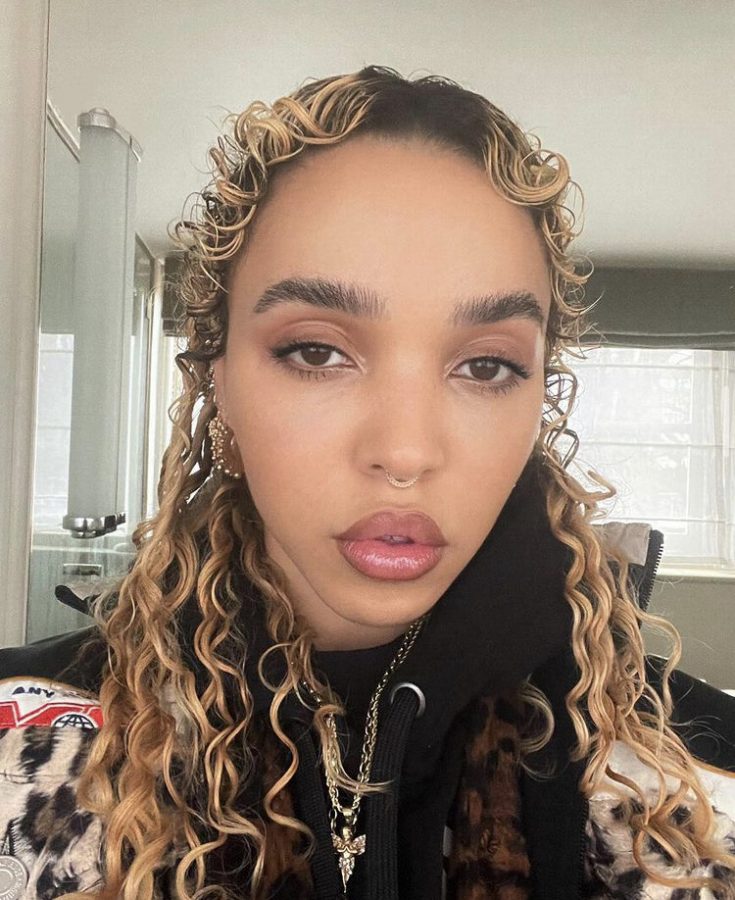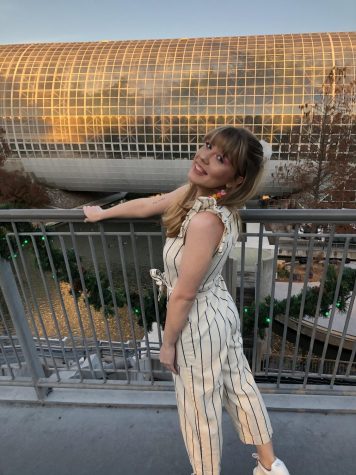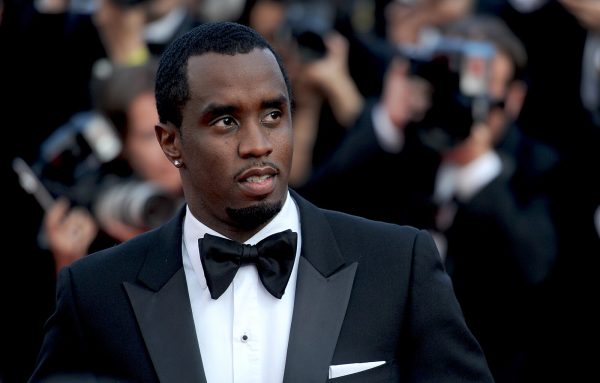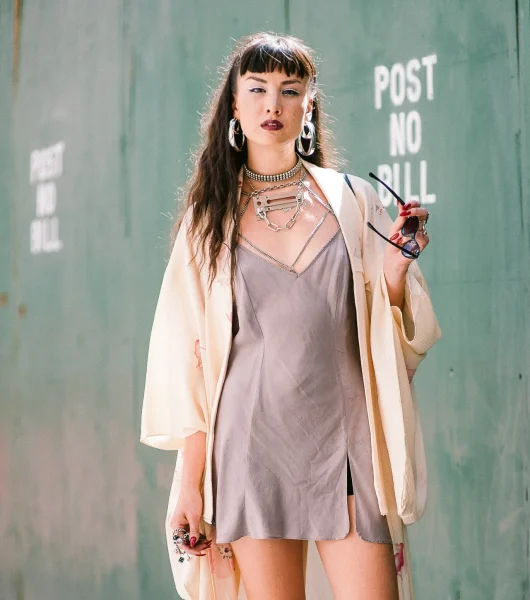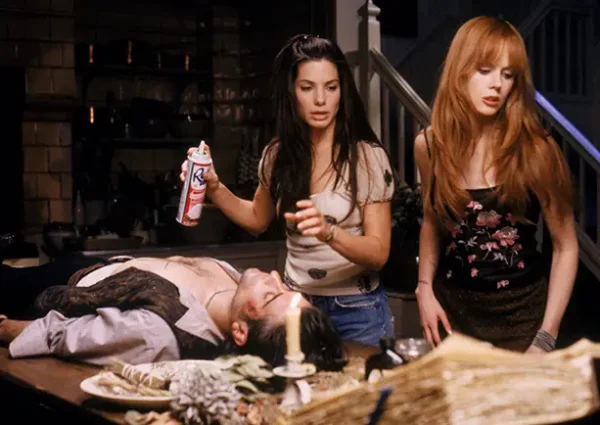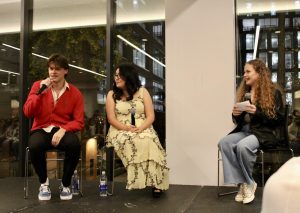FKA twigs opens up about experience with domestic abuse
February 1, 2021
TRIGGER WARNING: Sexual assault and abuse, domestic abuse, emotional abuse
English singer-songwriter FKA twigs, a genre-bending performer and artist, recently guest-starred on BBC Radio’s podcast series “Grounded with Louis Theroux” to discuss her canceled tour, her new record during quarantine and her recent struggles with domestic abuse.
The star made gigantic waves within the music industry in 2019 with her second studio album, “Magdalene,” named after the Bible’s Mary Magdalene, whom twigs relates to and believes is deeply misunderstood.
The album stunningly wove together the negative imagery surrounding Mary Magdalene and women in general, including herself, who has faced constant scrutiny as a woman in the music industry.
When asked about the process of working on another album, twigs joyously described making music throughout lockdown with collaboration through text and FaceTime.
She said that while she hasn’t met many of her collaborators in person, her next album (which she described as “a real product of 2020”) will feature more collaborations than she has ever had.
“It’s about being able to have my work represent landmarks in time. To make an album over FaceTime is the epitome of an artist being isolated and still having the desire to make work. So I felt that I did that,” said twigs.
The artist later spoke about the racism she encountered growing up as a mixed-race woman from London, including being the only Black person in her primary school, heartbreakingly describing how she was bullied and ostracized in school. “I felt really othered because I wanted to fit in so badly up until I was like 15,” she said.
FKA twigs also recalled the “deeply horrific” racist comments directed at her while in a relationship with Robert Pattinson, “He was the white Prince Charming and I think they considered that he should definitely be with somebody white and blonde and not me.”
In response to a question about her extraordinary career and multiple talents, she said, “People talk about Black excellence, but that is because we have to be excellent to be considered average, you know, I worked so, so, so, so, so hard just to get a little seat at the table and then I got there and people just called me the most hurtful and ignorant names on the planet.”
FKA twigs returned to Theroux’s podcast a few months after the September interview to talk about the news that she had filed a lawsuit accusing actor Shia LaBeouf of sexual battery, assault and infliction of emotional distress.
In the first minute of the second interview, she said, “I felt like I was being dishonest in a way because the one thing I had in my head was that the majority of this year I have been recovering from being in an abusive relationship… it’s difficult because it’s not something that defines me but it is now a big part of who I am.”
She continued, “I think when we spoke last time I was still very much thinking about whether I wanted to come forward and talk about it, and seeing how during COVID a lot of victims are in a confined space with their abusers and not being able to get out, I wanted to come forward and talk about it because it is something in society that is a really big problem. It’s really common and for some reason, we don’t talk about it and just ignore it.”
FKA twigs expressed her desire to raise awareness for the signs of abuse that were evident in her relationship: an intense honeymoon period at the beginning, intense love-bombing, and the grooming that occurs in an abusive relationship.
She described the grooming as “something that can come out through someone being jealous, controlling; little things that you could do wrong that could take away from the happiness of where things could be. For me, it was being nice to a waiter or being polite to somebody that could be seen as me flirting or wanting to engage in some sort of relationship with somebody else when I am literally just ordering pasta and being polite.”
FKA twigs described the gradual breakdown of confidence and sense of self, feeling of isolation and the reality that abusers put their victims through.
“He would wake me in the night and accuse me of all sorts of things: accuse me of staring at the ceiling and thinking about ways to leave him, accuse me of masturbating, accuse me of not wanting to be with him, accuse me of wanting to be with someone else but it would be always, I would say, between four and seven in the morning.”
As a result of this abuse, twigs stated that for most of her lockdown she has been “kind of trying not to wake up between three and seven in a panic attack.”
“That’s what I’ve been trying to do. And I am there now, but for a long time, anything that woke me up in the night, even if it was just my dog or a noise outside or just needing to go to the bathroom, could trigger an intense panic attack because I was left with PTSD from that,” twigs said.
She continued, “Again, this is something I don’t think we really talk about as a society, just in terms of the healing of leaving and how much work then has to be done to get back to the person you were before and that is time-consuming and it’s exhausting and it’s expensive as well. I completely acknowledge my privilege of having a house and having a good set of friends around me and having the means to have therapy twice a week if I need it.”
Theroux asked her a question that she said many victims get after opening up about abuse: “Why didn’t you just leave?”
It was undoubtedly a tone-deaf question, but she answered, “I didn’t know who I was. I was hollow. That ‘why didn’t you just leave’ conversation is something I really want to tackle. People often ask the victim or the survivor ‘why didn’t you just leave instead of asking the abuser ‘why are you holding someone hostage through abusive behavior?’ It’s a fair question for you to ask, ‘why didn’t you leave,’ but it’s a lot to put on me and it puts a lot on victims and survivors.”
“It’s a lot, it’s a big question… one answer I’ve given is that it genuinely felt impossible. I felt so controlled and so confused and I felt so low beneath myself that the fear of even leaving and knowing I had all this work to do to get back to feel ok it was completely overwhelming and it felt very impossible,” she added.
The performer ultimately said she wanted to come forward in order to show others that have gone through the same thing that they are not alone– “I’d like to be able to raise awareness on the tactics that abusers use to control you and take away your agency.”
A few months before she called a woman’s helpline, FKA twigs was driving home from the desert with LaBeouf.
“He was threatening to crash the car unless I said I loved him, and he ended up basically strangling me at a gas station. And nobody did anything. That was a really low moment for me because I felt like I would never be believed,” she said.
She described the moment she decided to leave, “I remember going back to where I was staying and calling an abused women’s helpline, and her reaction to me was so serious. She was like, ‘OK, from what you’ve said, it feels to me like you’re in an unsafe place. Does your abuser know where you are? Who have you told about this?’ It felt really like… somebody is taking this so seriously and wants to get me somewhere safe, and that was a really massive wake-up call. That was the time when I realized I need a lot of help to get out of this.”
FKA twigs released a new single on Jan. 26 with grime rapper Headie One and UK producer Fred Again.. called “Don’t Judge Me,” a song she described as lighter than her other music.
The accompanying music video, directed by the co-director of Beyoncé’s “Black is King,” Emmanuel Adjei, is a stunning display of twigs’ unbelievable talent, with striking visuals, vocals and incredible dancing.
FKA twigs commented on the inspiration behind the new single, “I have been missing my friends and going out, getting ready and dancing. I wanted to make music for the people closest to me that I love.”
If you or someone you know is dealing with abuse, please take a look at the resources below.
UNIVERSITY RESOURCES:
The Office of Sexual and Interpersonal Wellness (CONFIDENTIAL RESOURCE)
- Juliette Verrengia, MSW
- Phone: (212) 346-1931
- Email: [email protected]
Peer Advocates Against Sexual Assault (CONFIDENTIAL RESOURCE)
- Email: [email protected]
- Instagram: @paasaatpace
Counseling Center
- 156 William Street, 8th Floor
- Phone: (212) 346-1526
- 24/7 On-call staff
GENERAL RESOURCES:
National Domestic Violence Helpline
- Call 1.800.799.SAFE (7233)
Rape, Abuse, and Incest National Network (RAINN) – National Sexual Assault Hotline
- Hotline: 1 (800) 656-4673
- Available 24 hours a day, 7 days a week via phone and online chat
National Suicide Prevention Lifeline
- Hotline: 1-800-273-8255
- Available 24 hours a day, 7 days a week via phone and online chat.

